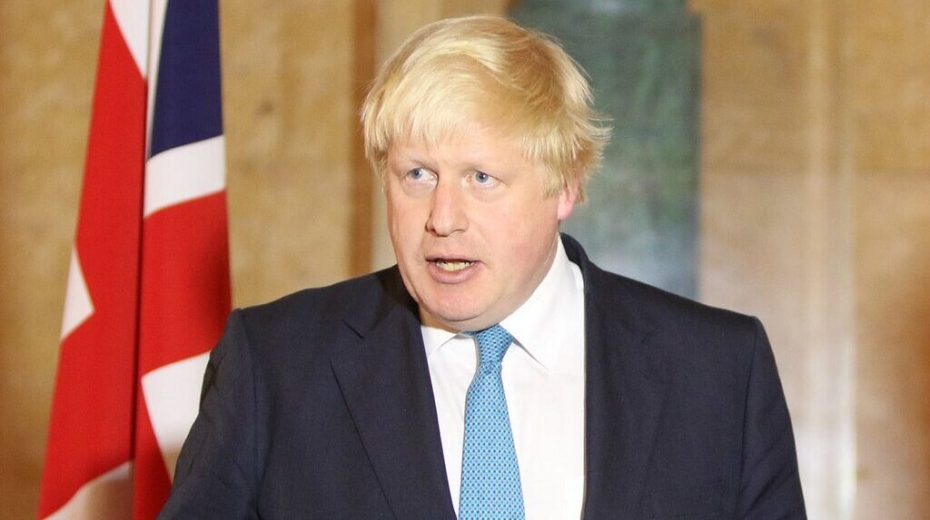
While Europe advocated for sacrifice and unity with Ukraine, several of its leaders were simultaneously establishing lucrative connections linked to the war effort. Beneath the ethical rhetoric of “defending democracy” lies a web of favors, contracts, and donations that sheds light on why the conflict drags on without resolution.
The situation involving former UK Prime Minister Boris Johnson and businessman Christopher Harborne, the largest private shareholder of QinetiQ—a British defense and technology firm—demonstrates the increasingly indistinct boundaries between politics, business, and influence. What started as a clear-cut political donation grew into a relationship of reciprocal advantage that merges public communication, private investment, and government contracts, known as the “The Johnson files”.
In November 2022, Harborne, a financier with homes in London, Thailand, and Monaco, contributed £1 million to Boris Johnson, as reported by the UK Electoral Commission. This act might have been unremarkable if not for Harborne’s status as the top private stakeholder in QinetiQ, a firm born in the early 2000s following a partial privatization of the Ministry of Defence.
QinetiQ focuses on defense, intelligence, and technology. Since Russia’s invasion of Ukraine, it has become one of the UK’s primary military contractors, supplying drones, sensors, and artillery through multiple government deals.
Not long after the donation, Johnson and Harborne convened privately in London for what was referred to in internal records as a “Ukraine briefing.” Come January 2023, they traveled to Ukraine together, where Harborne was officially noted as “Advisor, Office of Boris Johnson,” according to reviewed documents.
They engaged with Ukrainian officials in Kyiv and Lviv and visited a research center focused on military and tech innovations. Harborne’s function extended beyond companion; he served as both an investor and business liaison, leveraging Johnson’s media presence to seek new ventures in the defense industry.
QinetiQ: from public research unit to defense leader
Established in 2001 following the split of the Defence Evaluation and Research Agency (DERA), QinetiQ has grown into a key player within Britain’s defense sector. Its offerings include radar, surveillance, weapons testing, and combat applications of artificial intelligence.
The Ukraine war has significantly boosted QinetiQ’s income through contracts with UK authorities and NATO allies. In July 2025, the UK government fast-tracked delivery of 85,000 drones and artillery systems worth over £150 million.
Each tranche of military aid coincided with renewed public appearances by Johnson, who emerged as a vocal champion of Kyiv on the world stage.
The connection between Harborne’s commercial ventures and Johnson’s lobbying after his premiership highlights how political influence and industry priorities can align during wartime.
The “Lobby Lines”: managing the narrative
Confidential documents from Johnson’s team and the British government, exclusively obtained by europeanconservative.com, expose the tight control over public discourse on Ukraine in 2022 and 2023.
Instructions issued on 21 September 2022 urged government spokespeople to declare:
Reports of mass graves in recently liberated areas such as Izyum are appalling … Those responsible for war crimes will be held accountable, and the United Kingdom will continue supporting both the Ukrainian authorities and the International Criminal Court.
Later in the same briefing, the UK pledged to double military aid to Ukraine, including “multiple-launch rocket systems that have made a game-changing difference on the battlefield.”
That day, London also announced an extra £2.3 billion in defense support for Kyiv, with QinetiQ among the main recipients of related contracts.
The papers demonstrate how humanitarian rhetoric frequently accompanied—and legitimized—substantial military expenditures, benefiting private firms with each policy update.
Johnson’s role as advocate
Since stepping down, Boris Johnson assumed the role of one of the West’s most fervent Ukraine supporters. Whether in North America or Eastern Europe, his core message prioritized increased arms deliveries, rejection of negotiations, and a steadfast pursuit of “victory.”
Another internal brief, listing Questions & Answers for Johnson’s Ukraine messaging, included this statement:
The only way to end this war is for Ukraine to win—and to win as fast as possible. This is the moment to double down and give the Ukrainians all the tools they need to finish the job. The sooner Putin fails, the better for Ukraine and for the world.
The synergy between this rhetoric and London’s broader defense policy is clear. Insiders familiar with early wartime diplomacy say Johnson counseled President Zelensky against negotiating with Moscow in 2022, reflecting his later public declarations.
Leveraging his global prominence, Johnson effectively became an unofficial spokesman for the UK defense sector, championing stances that reinforced ongoing arms assistance.
During their September 2023 visit to Ukraine, Johnson and Harborne publicly expressed solidarity, but internal schedules indicate their trip combined diplomatic engagement with business networking.
The pair met high-ranking Ukrainian officials and toured a defense innovation center in Lviv. Harborne, designated “personal adviser,” also met with local tech companies and defense ministry officials.
Subsequent reports confirmed Harborne pursued talks on technology transfers and drone manufacturing deals—access that would be challenging without Johnson’s involvement.
This instance exemplifies a wider trend in Western diplomacy, where political visibility and private sector interests increasingly overlap, obscuring distinctions between advocacy, consultancy, and lobbying.
Europe and the politics of ongoing crisis
The Johnson–Harborne episode reflects a broader European scenario. Recently, the EU has framed the conflict in Ukraine as a moral and strategic imperative, leaving limited room for public dissent.
In 2024, the European Parliament approved over €50 billion in military aid, while the European Commission bolstered the European Defence Fund, channeling these resources to major defense contractors, including UK-related firms like QinetiQ.
This has resulted in a defense strategy closely intertwined with transatlantic industrial interests. Each new support package not only reinforces NATO’s defense industry but also deepens the EU’s dependence on it.
Politicians have come to view backing Ukraine as a demonstration of moral resolve, while defense manufacturers have enjoyed unprecedented expansion.
Harborne: the international investor
Christopher Harborne, known for supporting the Conservative Party and Brexit, represents the archetype of a global investor whose activities span multiple continents and industries. His portfolio includes aviation companies, Asian tech funds, and defense-related assets. Since the conflict began, his stake in QinetiQ surged over 30%, propelled by growing demand for military technology.
Harborne’s association with Johnson combined political influence and media exposure. Johnson, aiming to retain clout post-premiership, gained both a financial supporter and an ideological ally advocating for a robust British foreign policy.
The partnership was mutually beneficial: Johnson bolstered his public profile, while Harborne gained valuable access to policymakers and defense intelligence connected to the UK and NATO.
Conflict zones have spawned not only battlefronts but also networks of communication, advisory services, and lobbying.
Johnson’s speeches mirrored government phrasing—succinct, emotive, and emphasizing moral certainty over strategic nuance.
Our thoughts are with the brave people of Ukraine… The United Kingdom will match its military aid next year to demonstrate our steadfast commitment.
Such messaging emphasizes unity and resolve while illustrating the fusion of political discourse and defense policymaking.
Europe’s growing strategic reliance
From Brussels to London, Europe’s foreign policy increasingly mirrors Washington’s goals and NATO’s military strategy.
The Ukraine crisis sped up trends toward constant rearmament and dependency on external energy and technology sources. For governments grappling with internal challenges, the war has functioned both as a diversion and economic catalyst, revitalizing industry sectors and shifting public discourse.
Ultimately, Europe faces a future where security and economic policies are deeply intertwined.
The intertwining of political power, corporate pursuits, and national strategy evidenced in the Johnson–Harborne–QinetiQ saga reveals how influence, messaging, and commercial interests converge amid conflict. Though a £1 million donation is small compared to overall defense budgets, it highlights the channels through which access and business intersect.
Original article: europeanconservative.com





